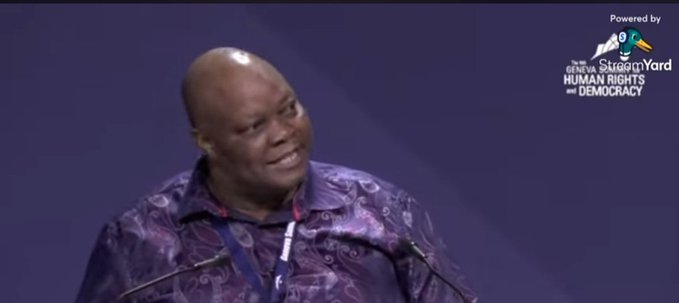Job Sikhala tells Mudha Ncube where to get off

UNRELENTING: NDWG leader Job Sikhala
In a bold response to what he deems as state-endorsed harassment, Job Sikhala, the vocal Zimbabwean opposition leader and attorney, has vociferously denounced Midlands’ Provincial Governor Mudha Ncube’s recent public declaration that labeled him an enemy of the state.
This strong condemnation comes on the heels of Sikhala’s liberation from an extended 595-day imprisonment on charges that ultimately proved to be unsubstantiated.
Sikhala, Chairman of the National Democratic Working Group (NDWG) was subjected to what has been widely criticized by international observers and human rights groups as charges rooted in political motivations. His arrest, trial, and subsequent detention have sparked global outrage, casting a spotlight on the concerns regarding the state of democracy and adherence to the rule of law in Zimbabwe.
The incendiary slogan chanted by Ncube has intensified existing tensions, with Sikhala contending that such inflammatory language constitutes a direct threat to his personal safety.
In a fervent appeal, he has summoned his supporters, both within Zimbabwe and internationally, to strongly repudiate these menacing threats.
Sikhala’s call to action underscores the volatile political environment in Zimbabwe, where opposition figures frequently encounter the government’s authoritarian measures.
Sikhala’s legal troubles began with his apprehension over allegations tied to an online video, which the authorities claimed implicated the ruling ZANU-PF party in the demise of CCC activist Moreblessing Ali. Despite testimony from an expert witness indicating that the video had been altered, Sikhala endured a protracted trial that culminated in his exoneration as the charges disintegrated.
Ncube’s recent provocative chants have not only reignited concerns for the security of political dissidents in Zimbabwe but have also prompted questions about the government’s dedication to nurturing an atmosphere conducive to open and fair political dialogue.
Sikhala’s reaction to these chants is not merely a defense of his own position but a broader critique of the methods employed by those in power to stifle opposition.
In the face of such challenges, Sikhala remains steadfast, pledging to persist in his pursuit of justice and democratic freedoms. His resolute spirit and refusal to be intimidated by threats are emblematic of the tenacity of those who resist tyranny. As the international community observes, Sikhala’s narrative is not just a tale of individual struggle but a testament to the collective aspirations for liberty and the rule of law.






